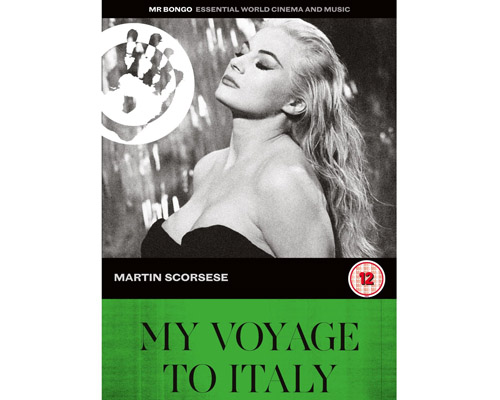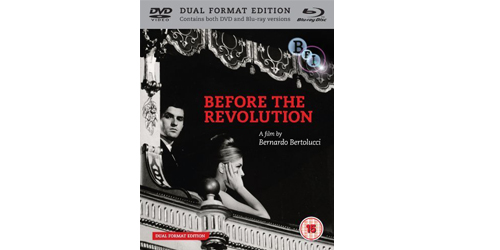Pete's Peek | My Voyage to Italy - Martin Scorsese's masterclass in classic Italian cinema

The latest updates, reviews and unmissable series to watch and more!
You are now subscribed
Your newsletter sign-up was successful
Want to add more newsletters?

ONCE A WEEK
What to Watch
Get all the latest TV news and movie reviews, streaming recommendations and exclusive interviews sent directly to your inbox each week in a newsletter put together by our experts just for you.

ONCE A WEEK
What to Watch Soapbox
Sign up to our new soap newsletter to get all the latest news, spoilers and gossip from the biggest US soaps sent straight to your inbox… so you never miss a moment of the drama!
Running at 237 minutes, you'd expect this documentary about classic Italian films of the 1940s and 1950s to be a bit of a drag, but director Martin Scorsese http://youtube.com/v/CK5PRxvXiCw Roberto Rossellini, who pioneered neo-realism - a cinematic technique that was a direct response to the impact of Fascism and the Second World War on Italy.
Beginning with 1945's Rome, Open City, neo-realism forever changed the rules of movie making, as illusions took a backseat to the grim reality of life in post-war Italy. Scorsese then goes on to explore Rossellini's lesser-known works including Paisà (1946), L'Amore (1948), The Flowers of St. Francis (1950) and Europa '51 (1952), and his passion is so great that I am now seeking them out.
Vittorio De Sica, the grand entertainer, is next. The former matinee idol turned director was greatly influenced by Charlie Chaplin as witnessed in Umberto D (1952), and had the unique ability to make his camera disappear in powerfully simplistic films like Shoeshine (1946) and his neo-realist masterpiece Bicycle Thieves (1948). But he was also able to successfully walk the razor thin wire between comedy and drama in films like The Gold of Naples (1954). http://youtube.com/v/ho4nBIX0_PI Luchino Visconti, who created epic stories of grand passions played out in the world of European aristocracy (like 1954's Senso), but was also capable of raw reality as seen in his Marxist-inspired 1950's drama La Terra trema about Sicilian fishermen. http://youtube.com/v/v_kQBJZKS_I Federico Fellini, whose autobiographical approach to film is very personal to Scorsese. I vitelloni (1953), which captures the bittersweet emotions about growing up, was a major inspiration for Scorsese’s Mean Streets. And thanks to his insightful take on Fellini's La dolce vita (1960), 'a milestone decadent epic about cosmopolitan Rome', and 8½ (1963), 'the purest expression about the love for cinema', I now see them in a completely new light. http://youtube.com/v/zMdcNep6Yz8 Michelangelo Antonioni, a director whose puzzling road movie L'avventura (1960) and bleak poem to emptiness L'eclisse (1962) were a direct response to a new urbanised Italy in the grip of the Cold War and whose eye focused on individuals at odds with a rapidly changing world.
If Martin Scorsese wants to keep film history alive, then with My Voyage to Italy he is certainly on the right track and I do hope he continues. But for the best masterclass in classic Italian cinema, this is a crash course you won't want to miss out on.
Released 26 September through Mr Bongo Films
AND ALSO...

After its recent revival in UK cinemas, the BFI have restored Bernardo Bertolucci’s Before the Revolution in a new Dual Format Edition. This rarely seen film (made when Bertolucci was just aged 22) is a beautifully operatic homage to the French New Wave and Italian neo-realists, which also won the director the Cannes Critics’ Week Prize in 1964.
The latest updates, reviews and unmissable series to watch and more!
http://www.youtube.com/watch?v=uMh1bNDuiAI&fs=1

